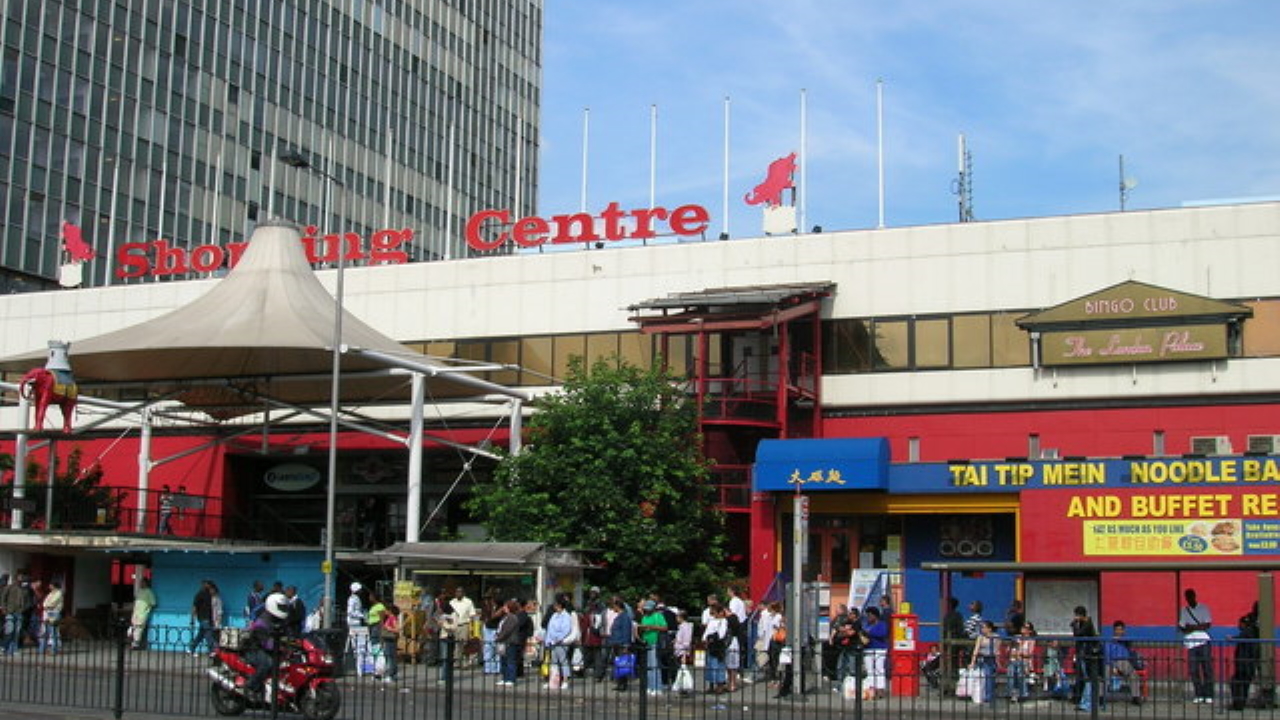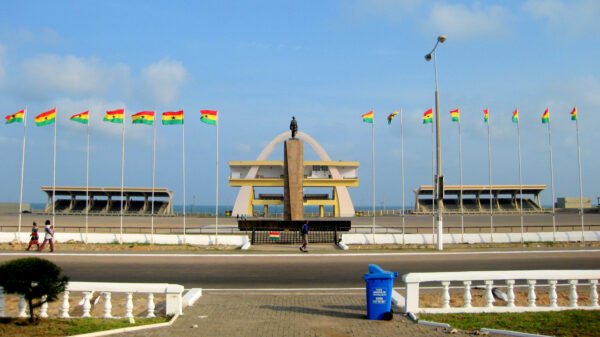Roar writer Maisie Allen on the Elephant and Castle shopping centre’s closure, and what it means for the greater struggle against London’s gentrification.
At the corner of the infamous Elephant and Castle roundabout, the once-bustling shopping centre of the same name now stands eerily empty after closing its doors last month as part of Elephant and Castle’s regeneration project. The first indoor shopping centre of its kind in Europe, it was a safe haven for many independent traders across London due to its central location in Zone One and its acceptance of all individuals regardless of background. However, with London still in the throes of gentrification, even in the midst of a pandemic, the Elephant and Castle shopping centre was always going to be an inevitable casualty in the redevelopment battle taking place across the capital.Â
Gentrification was first defined by British sociologist Ruth Glass in 1964 as the process in which middle-class communities displace working-class populations, largely people of colour, from their homes in urban areas. London has been at the forefront of this struggle for decades. For fifty-five years the Elephant and Castle shopping centre, much like its namesake, had been a symbol of working-class and multicultural London. The centre’s closure highlights the people it’s demolition and redevelopment will leave behind, in favour of a more affluent – and disproportionately whiter – residential population.Â
One of the most upsetting effects of this closure is the displacement of the independent traders who made their livings within the walls of Elephant and Castle, selling everything from clothes to food to various other miscellaneous goods. With no set establishment in which to now earn money, the livelihoods of many of these individuals are currently at stake. Some businesses were lucky, and have been offered premises nearby for relocation. But approximately forty businesses have been left with nothing from Southwark Council or Delancey, the development partner for Elephant and Castle.Â
Whilst society cannot remain stagnant in times of economic upheaval, it is consistently working-class communities and people of colour who always seem to end up further disadvantaged when these changes come about. Southwark Council and their development partners claim they want to rejuvenate Elephant and Castle to be the ultimate Central London destination, with a new campus for the London College of Communication and thousands of new homes, leisure facilities, and places of hospitality.Â
This may sound positive on the surface. But, currently, only one section of the development will include affordable and socially managed housing. This begs the question of where gentrification stops and social cleansing begins. Organisations like Latin Elephant are still fighting to give Elephant and Castle’s communities of colour a voice in this process so they are not wholly disregarded in the so-called regeneration process, as has happened in similar projects previously, such as those in Brixton and Islington. However, these are mainly run by volunteers, and so are limited in their potential impact against large businesses and political establishments.Â
It is no secret that the shopping centre was physically in decline and in desperate need of maintenance; the exterior of the building was faded and run down, and the interiors still reflected the building’s 1960s origins. However, why seek to demolish it when investment into the centre itself could have proved just as key to Elephant and Castle’s change? Why attack the livelihoods of so many Southwark residents, a borough already more economically deprived than most, in the name of white affluence and Instagram-friendly backdrops?
The selling-off of the centre is not even one that will prove profitable to Southwark Council, as financial gain is often a narrative pushed through to justify gentrification. The Heygate Estate, which the centre currently sits on, is being sold to developers for £50 million. This is a great deal of money on the surface, yet Southwark Council has since spent more trying to relocate and rehouse many of the estate’s residents.Â
The sinister undertones of this reek of hypocrisy on the side of London’s elected officials, who claim that they’re proud of the city’s multicultural nature and its openness for individual enterprise, yet cannot wait to exclude the residents who prop up this narrative. The rising rent prices that central residences bring, as well as the general costs of living, means that Elephant and Castle will soon be unrecognisable; overrun with middle-class young professionals and so-called hipster bars, far removed from its working-class roots.Â
















